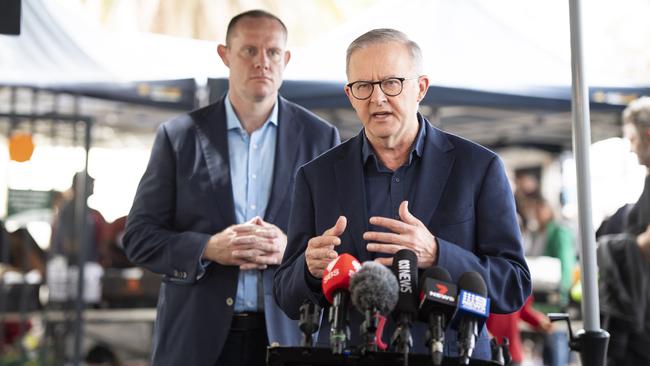
Many have assumed that after almost nine years and three conservative governments under three different prime ministers, the public would be ready to change government if Morrison himself was the issue. This thinking drove last Monday’s eight-minute hatchet job on Morrison’s time as PM, delivered by ABC 7.30’s political editor Laura Tingle.
According to Tingle, the Morrison government’s incompetence was evident in its failure to stand up to China; its decision to scrap Malcolm Turnbull’s ill-conceived French diesel-electric submarine deal in favour of an AUKUS alliance for nuclear subs and better technological exchange arrangements with the US and UK; and its handling of the 2019-20 bushfires, the pandemic and recent floods.
Yet Australia has unemployment at 50-year lows of 4 per cent after the worst recession since the Great Depression. The nation’s rate of economic growth is among the highest of the G20 members, inflation sits at half that of our trading partners, and Australia has had among the lowest Covid death rates in the world and the highest vaccination rates. None of those facts got a guernsey in 7.30’s package.
Sure, not all the government’s pandemic handling was smooth. But to listen to some journalists, it is as if they have read nothing about what happened in Europe or North America. Vaccines and RAT tests were difficult to find in most of the world at different times last year. And while Morrison has appeared slow to react to natural disasters, too many journalists have been unwilling to admit what has been true since federation: these issues are largely the responsibility of state governments.
By the time Tingle’s hit job went to air, the real story last week was Albanese’s competence, after he failed to recall the unemployment rate or the cash rate.
Some journalists tried to spin this as trivial. Not so. The 4 per cent unemployment rate had been a major talking point at the National Press Club as far back as late January and early February when Albanese, Morrison and Reserve Bank governor Philip Lowe made their first public set-piece speeches of the year. Unemployment was also the centrepiece of the budget handed down only a fortnight before the Albanese blooper.
The cash rate question should have been even easier. It’s been unchanged at 0.1 per cent for 17 months. The need to lift rates to fend off global inflation has been the biggest economic story in the world all year.
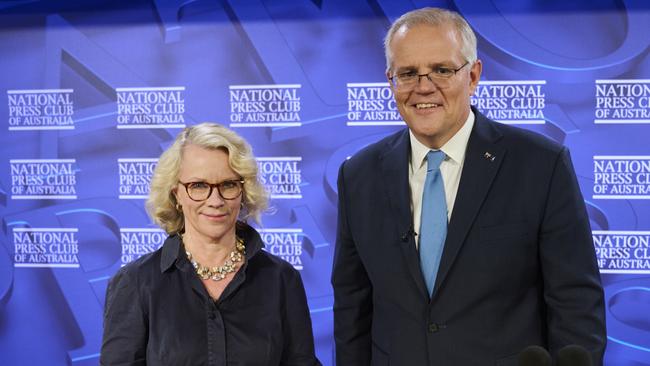
For three years, much of the left-wing media has fed into Albanese’s “liar from the Shire” spin, accusing Morrison of incompetence and moral failings on questions of sexual assault, women in the workplace, accountability for public spending and political rorting. They have shielded Albanese from scrutiny, leaving him unprepared for this campaign.
How else to explain that a two-term former cabinet minister and deputy PM in Kevin Rudd’s second prime ministership did not know last Thursday how the government’s asylum-seeker boat turnbacks policy actually worked? This is an important thing given Morrison ran that policy and Labor presided over 50,000 arrivals by boat and 1200 drownings after it deliberately ditched John Howard’s Pacific Solution. Albanese should have known turnbacks only work in concert with offshore detention and temporary protection visas.
Questions about Albanese’s past should have been dealt with years ago. As this column concluded on February 7 in a piece criticising the different treatments Morrison and Albanese received from Tingle as host at the Press Club on February 1 and January 25 respectively, Albanese “has had a lifetime in the bosom of the Socialist Left of NSW Labor since winning the state assistant secretary job in 1989”.
When conservative media commentators criticise Albanese for pretending to be an economic conservative the way Rudd did in 2007, they miss the point. For Labor to counter lifelong perceptions of Albanese’s politics, he really should have adopted Rudd’s mantra of “this reckless spending must stop”.
This did not occur to Labor because it has never accepted the reality of the government’s latest term. Morrison and Treasurer Josh Frydenberg have presided over an old-fashioned Keynesian spending spree like nothing seen since World War II. Rather than calling for an extension of the government’s pandemic JobKeeper scheme most of last year, Albanese and Labor’s Treasury spokesman Jim Chalmers should have been calling for budget repair.
In true factional form – and despite promising not to raise taxes apart from on multinational companies – Albanese wanted some big-ticket social programs: big pay rises for aged-care workers, extended childcare relief right up to family incomes of $590,000 a year, and 465,000 new free TAFE places.
While these are not huge programs compared with the government’s deficit, Labor is not telling voters how they will be paid for. Nor is Albanese prepared to commit to the government’s fiscal restraint target that federal taxes not exceed 23.9 per cent of GDP.
A smarter campaigner would have committed to the target and demanded to know why Frydenberg and Morrison were not doing anything to rein in spending. Given Labor’s trade union wing hates immigration, Albanese should reject Morrison’s sop to business leaders who want more foreign workers. He could argue this is part of a strategy to drive up wages. He could promise to walk the walk that Rudd and Gillard never did.
Rudd and Gillard threw tens of billions at the global financial crisis even though Australia had already escaped a recession by the time much of the money rolled out. Far more important was Chinese demand for our coal and iron ore, the Reserve Bank’s slashing of interest rates by three full percentage points between August 2008 and April 2009, the fall in the dollar to below US50 cents which made our exports more competitive, and the budget surplus left by John Howard.
Chalmers was chief of staff to Treasurer Wayne Swan during those years. In 2012, Swan announced four surpluses in the out years. None eventuated. Instead Gillard and Swan booby-trapped the nation’s finances by committing to huge spending on the Gonski education reforms and the National Disability Insurance Scheme.
Nothing better illustrates Labor’s profligacy during its last terms in office than Gonski, both versions of which failed to lift the results of Australian students in international benchmarking tests. When Turnbull launched Gonski 2 in 2017, the plan increased federal funding to schools by $30bn over 10 years. Then-opposition leader Bill Shorten’s claimed this was really a cut of $22 billion over what should have been spent. The ABC, Guardian Australia and many at the Nine newspapers accepted Shorten’s line that a rise was actually a cut.
This is how Labor and its media allies reinforce each other’s worst instincts.
So how would the ABC and Guardian Australia react if Albanese decided to announce a dramatic cut in immigration, a clear plan back to a balanced budget and a commitment to the 23.9 per cent tax cap? Not well, but plenty of the 10 per cent of undecided voters in the latest Newspoll might just back it.


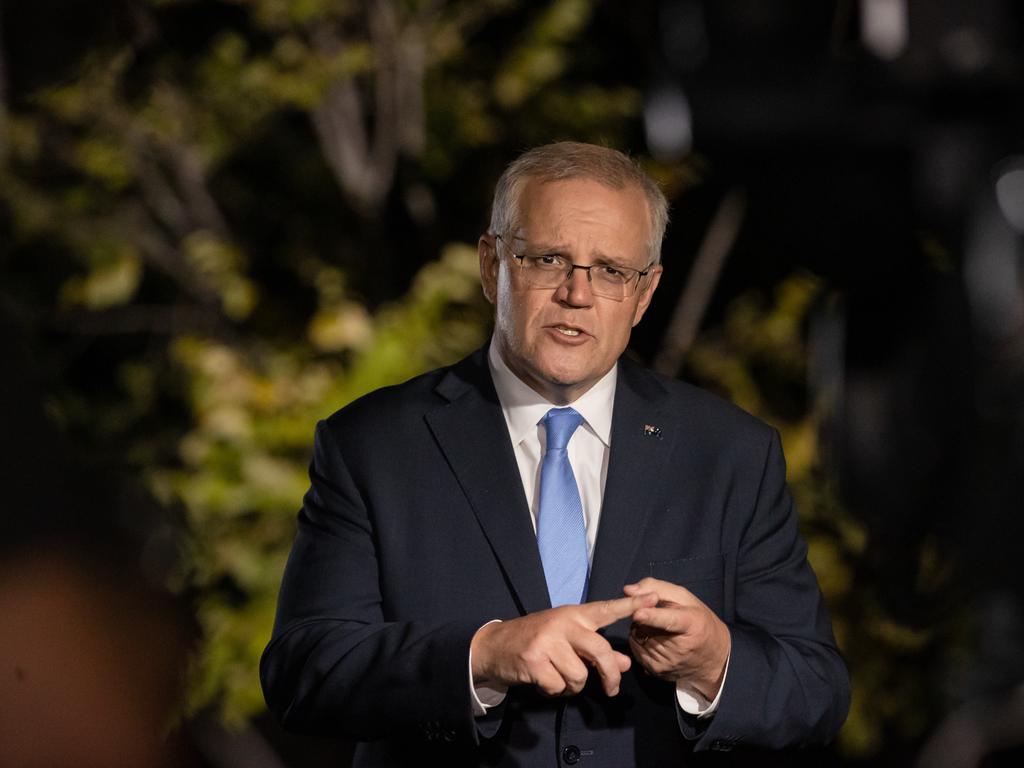
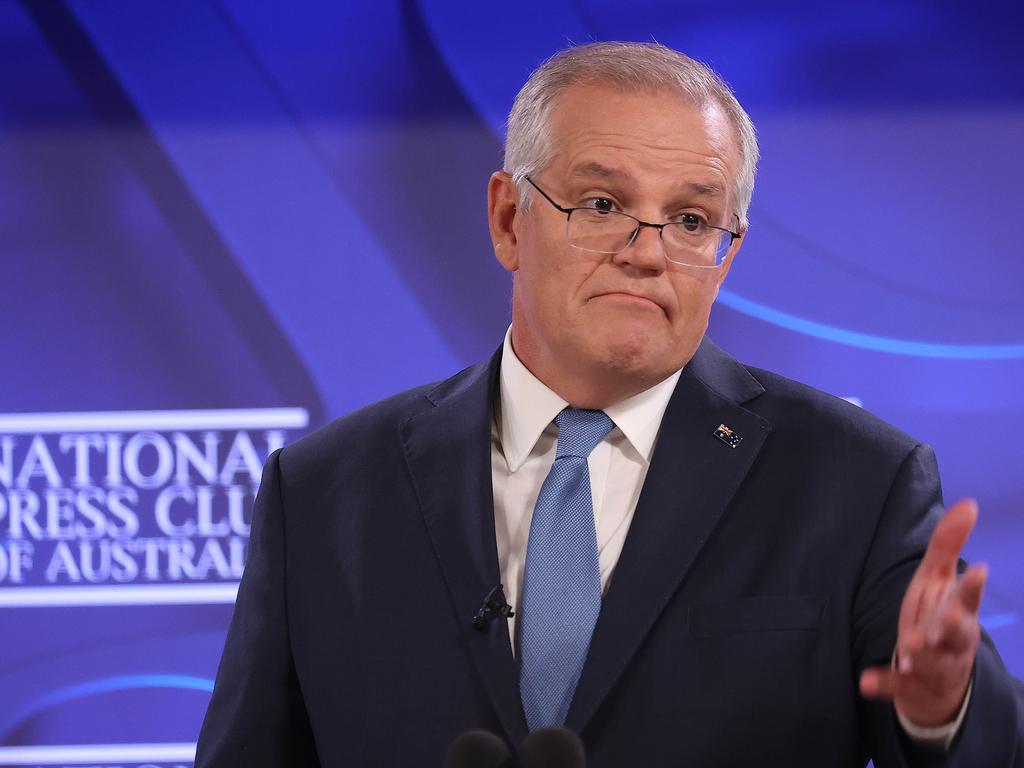

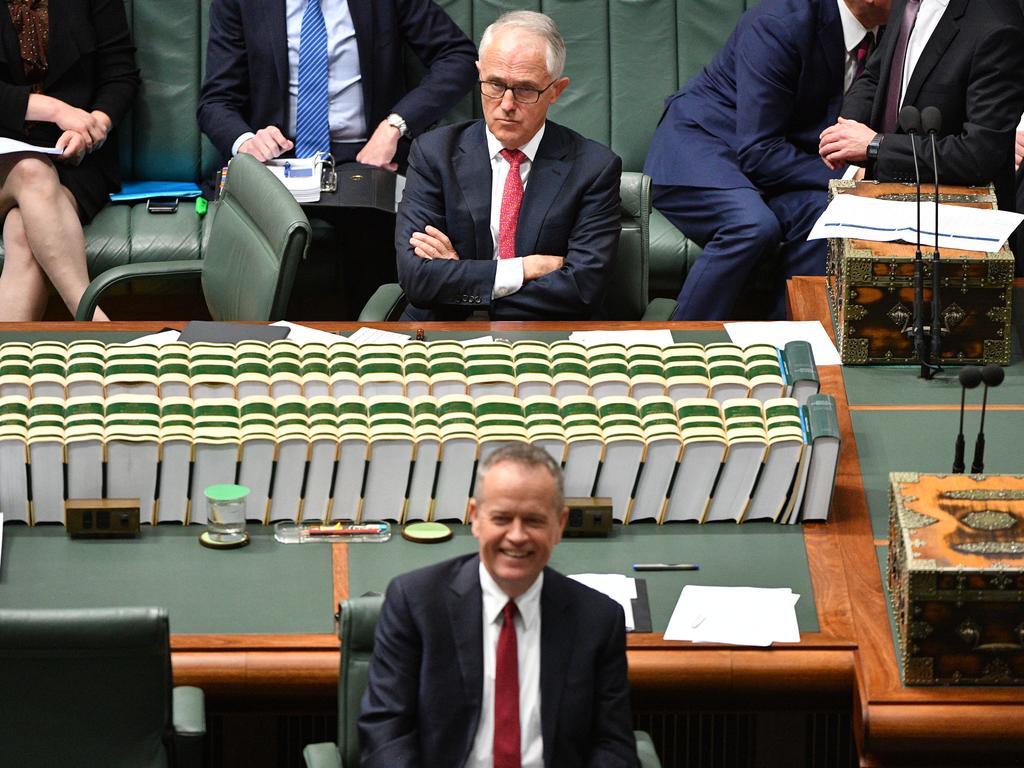


If the media campaign against the character of Scott Morrison is backfiring, as argued here last week, so is the determination of many journalists not to scrutinise Anthony Albanese.